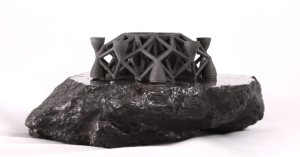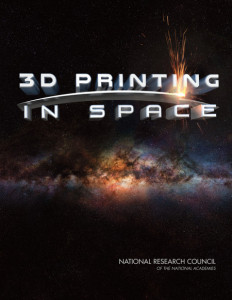Peter Lobner
In a 31 December 2015 post, I discussed the “U.S. Commercial Space Launch Competitiveness Act,” which was signed into law on 25 November 2015 and established, among other things, the legal basis for asteroid mining. I also identified the firm Planetary Resources (http://www.planetaryresources.com/ – home-intro) as one of the firms having a business interest in asteroid prospecting.
Today, at the Consumer Electronics Show (CES) today in Las Vegas, Planetary Resources announced that they, in collaboration with their partner firm, 3D Systems (http://www.3dsystems.com), have produced the first ever direct metal print of an object using metals recovered from an asteroid (or meteorite) that impacted Earth.
In the Planetary Resources announcement, they stated that the material used for 3D printing:
- “…was sourced from the Campo Del Cielo impact near Argentina, and is composed of iron, nickel and cobalt – similar materials to refinery grade steel.”
- “ …was pulverized, powdered and (then) processed on the new 3D Systems ProX DMP 320 metals 3D printer.”
You can read the announcement at the following link:
You can read more about the ProX DMP 320 3D printer at the following link:
http://www.3dsystems.com/3d-printers/production/prox-dmp-320
The milestone announced today demonstrates a key capability needed for building research bases and commercial facilities in space using raw materials found on another body in our solar system.
Imagine what the cargo manifest will be on future space missions to destinations that have useful natural resources that can be mined and prepared on site for use in various 3D printing (additive manufacturing) activities. The early missions will need to carry pre-fabricated structures for an initial base, tools for initial mining and manufacturing work, other items manufactured on Earth, and consumables. Once the on-site mining and manufacturing facilities reach an initial operating capability, the extended supply chain from Earth can be reduced commensurate with the capabilities of the local supply chain.
For more background information on this subject, National Academies Press published the report, “3D Printing in Space”, which you can download for free at the following link if you have set up a MyNAP account:
http://www.nap.edu/catalog/18871/3d-printing-in-space
Opportunities for 3D printing in space addressed in this NAP report include: manufacturing new or replacement parts needed on a space vehicle or off-Earth facility; creating structures that are difficult to produce on, or transport from, Earth; creating a fully-printed spacecraft; using resources available on planetary surfaces; recycling materials in space; and establishing a free-flying fabrication facility. The report also includes roadmaps for NASA and the U.S. Air Force deployment of 3D printing capabilities in space.
This is just the start. Manufacturing in space using locally sourced materials will revolutionize our approach for building a permanent human presence off the planet Earth.

